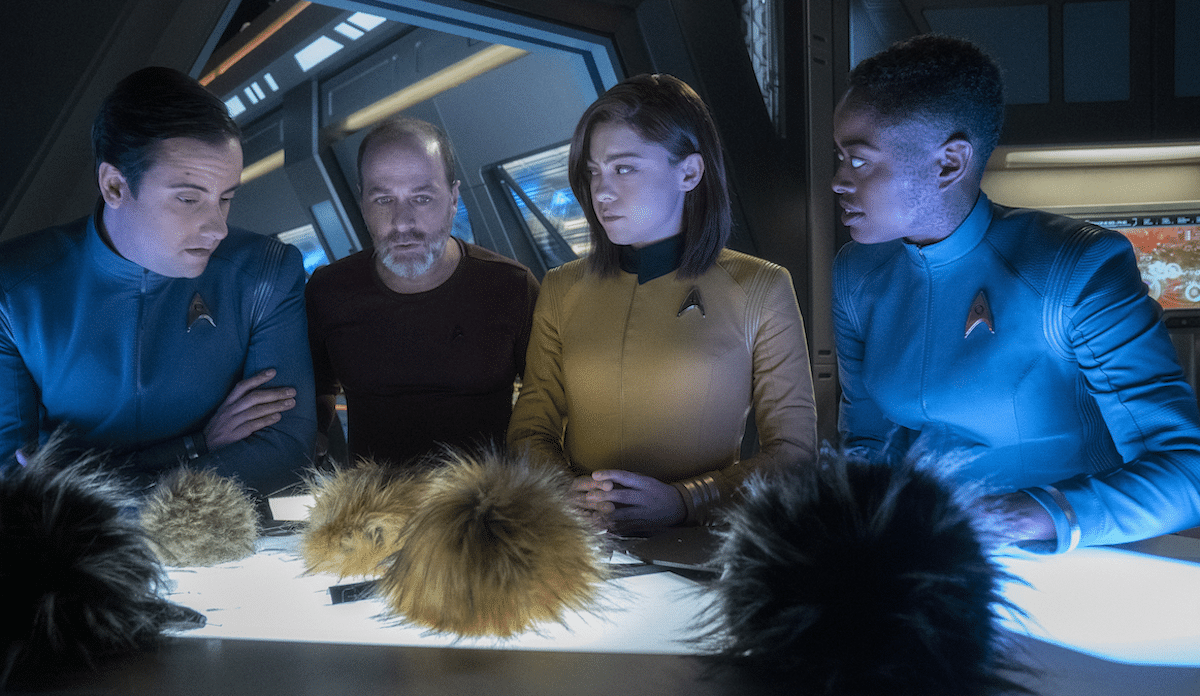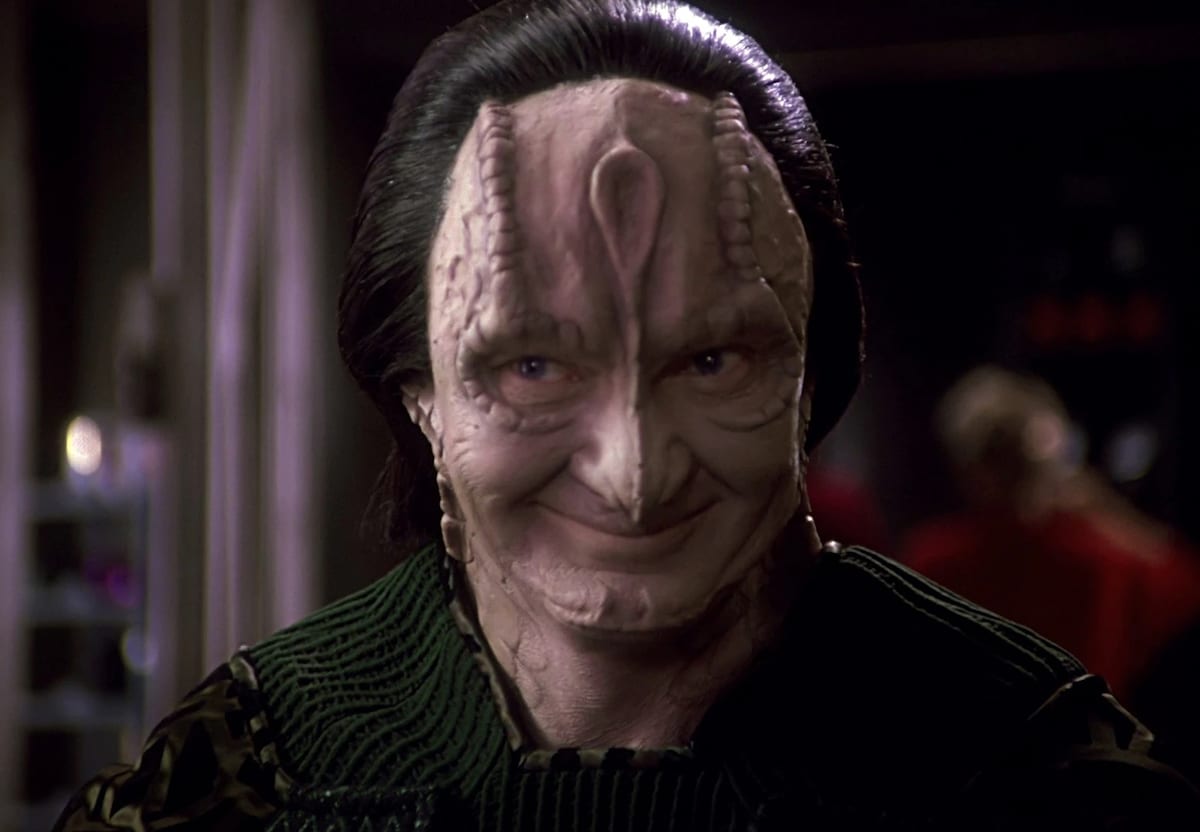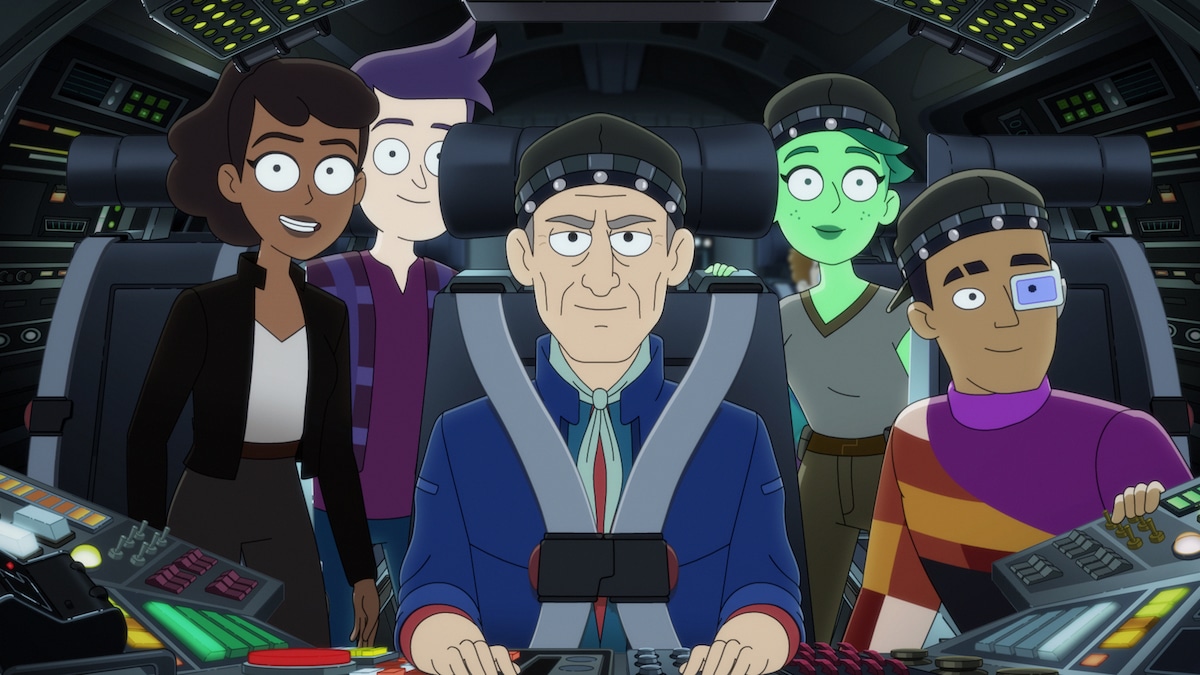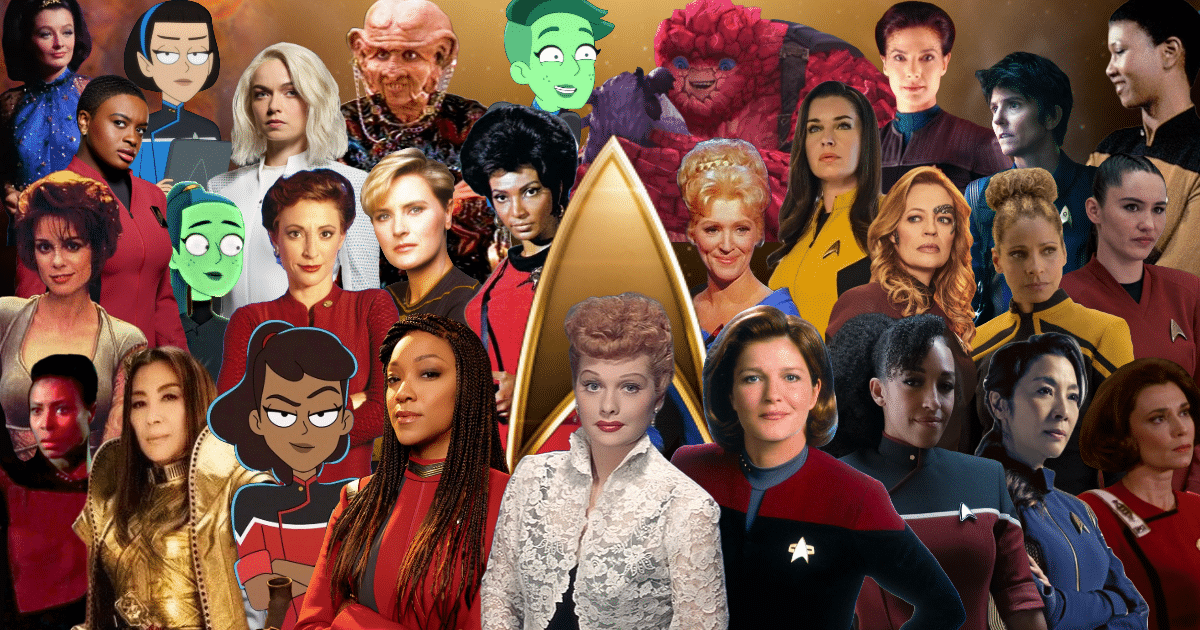Star Trek: Discovery and Star Trek: Lower Decks are ending, nobody knows what’s going to happen with Star Trek: Prodigy, and Star Trek: Picard is over. We’re soon going to be back in the lonely times when only one Star Trek show is airing, so maybe it’s time to throw some ideas at the wall and see what sticks.
Here are ten possible Star Trek shows to fill the void left by all those tragically departing shows.
Star Trek: Gilligan’s Andromeda
A ship (or a few) are flung into a far-off galaxy and have no hopes of getting back. It’s time for them to try to find a non-colonialist way to live in this new galaxy while also holding to their ideals. The title’s a joke, coming from Gilligan’s Island and Mass Effect: Andromeda, but a show with people from something close to a utopia trying to re-establish said utopia and learn about connecting and cooperating with others from the ground up could be very compelling, especially if other races are at a similar technological level. Let’s not have a repeat of the Kazon.
Cons: A bit like Star Trek: Voyager, could take some time for people to warm up to it.
Pros: Gets Trek out of relying on legacy characters; puts them in a completely new situation requiring new thinking; and could give us new races.
Star Trek: Couriers
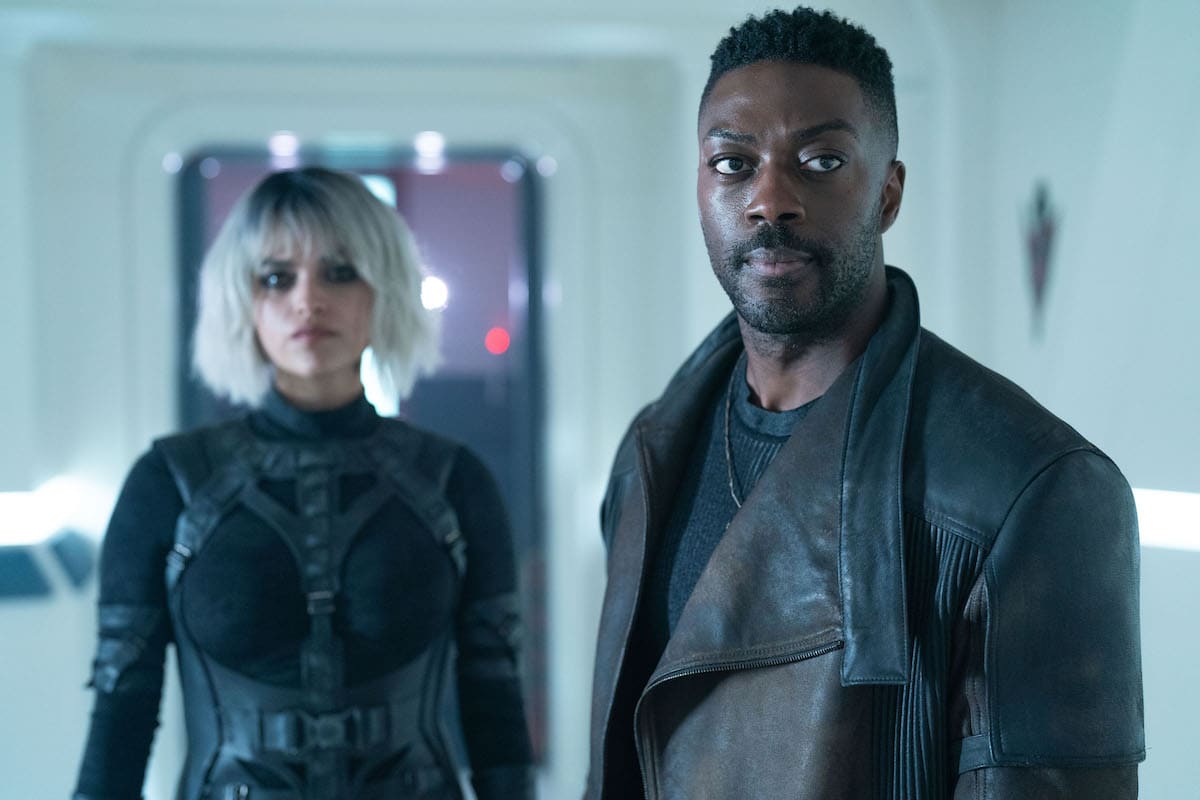
Lower Decks was fantastic with its glimpses at the more mundane side of being in Starfleet, but there were also a lot of dramatic, saving-the-day officially shenanigans. Give us something in the vein of The Office meets Futurama, where the threats are on a more individual level, where accidentally marrying into an alien polycule and moving them on board the ship is an option. We could have a mix of shady and noble, greedy and compassionate.
Cons: Not Federation/Starfleet focused so it might take some selling it to audiences.
Pros: Not Federation/Starfleet focused, so there’s freedom there, could develop some of the other races that haven’t gotten much, would be nice to have non-human leads.
Star Trek: ER
We know there are medical ships, and even the real-world has ships and groups that are dedicated to medicine. This could be something Starfleet, or be a whole Doctors Without Borders thing, bringing medical aid to anyone who wants it. There’s opportunities for all sorts of situations and settings here, and nobody needs to be killed by a helicopter falling on them twice. (I’ve never watched ER, and I’m also realizing that might have been Grey’s Anatomy instead, which I only saw like five episodes of, whoops.)
Cons: Not really glamorous or flashy; would realistically have more emotionally heavy episodes than most Trek shows.
Pros: Easy to rotate new writers in for an episode or two; gives us a stable crew and a vast, constantly-changing group of guest actors; the aforementioned medical shows have shown that there’s an audience there.
Star Trek: Rebuild
It’s probably predictable by now for an article coming from me, but give us Garak. Let me and Una McCormack (and Andrew Robinson!) team up and write Garak and others rebuilding Cardassia into something brighter and more hopeful from the shadows. Yes, Dr. Bashir (Alexander Siddig) will show up, and yes, they’ll be a couple.
But more seriously, something rising from the ashes is so fitting of Trek. Here’s a world and a people that have been bombed nearly to oblivion after a war with the Federation, followed by the Changeling-inspired Klingon invasion, followed by the Dominion Occupation. They’re hurting. They’re suffering. And they have the chance to transform into something better than they were before. There’s also potential for a race to find a cure for the Jem’Hadar who haven’t come out of their birthing chambers yet, and the very complicated discussion of whether there even should be a cure.
Cons: The show would be stationary; it would rely on Andy being down for it (which he’s expressed interest in, at least!); and it would take careful, conscientious handling.
Pros: This is as close to real-world as you can get with Trek, with a chance to show people as they are through the distancing lens speculative fiction provides. Power-hungry politicians, people who are at the end of their rope, and those who are trying to find balance and hope can be an incredibly powerful thing if done with care.
It also allows for some cameos, but most of the cast would be new Cardassians and some other non-Cardassian characters assisting. Also here’s a very, very good reason to have a lot of disabled actors playing disabled characters.
Star Trek: Other Rebuild
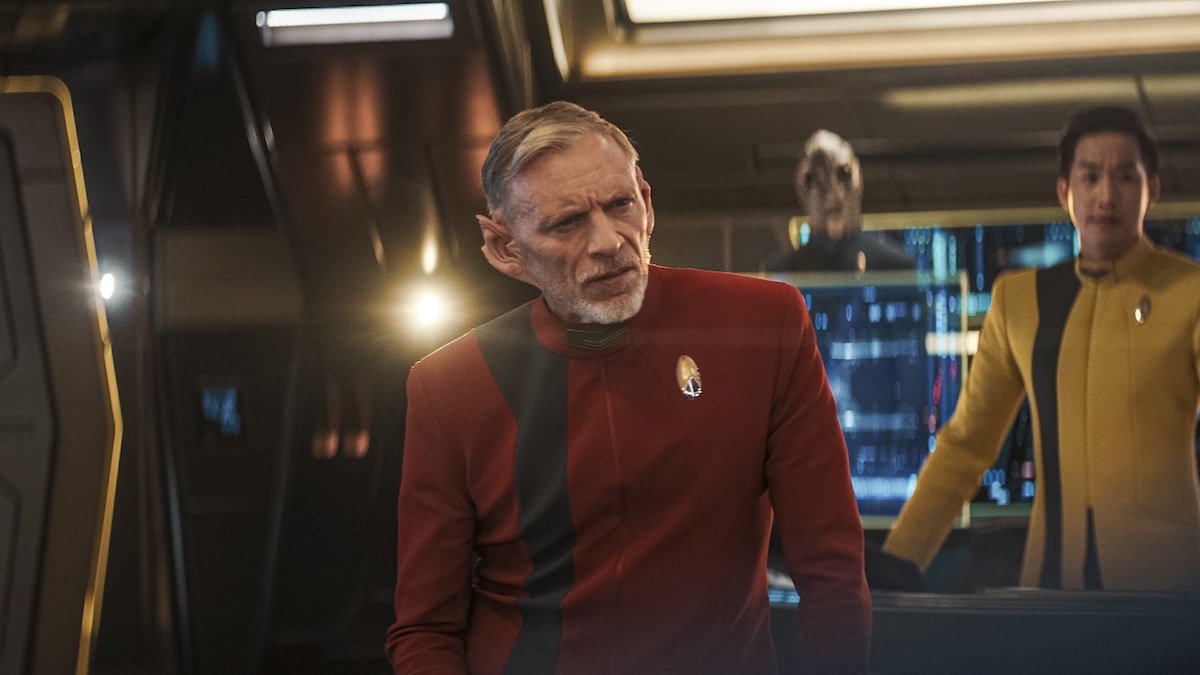
Discovery set up the Burn. But what happened right after it, when people were suddenly trying to survive while separated from ones they loved and homes they knew? How do you move on? What crews out there team up when encountering each other, and which turned pirate? Who decided that this is a clean break and it’s time to start a whole new life? Who instead decided to try the impossible and set out to find their family that’s serving on a totally different ship? The familiar has turned unfamiliar, and there are no easy answers.
Cons: You can’t reflect all of these possibilities with just one crew, but the more crews you add, the more difficult it will be for people to connect to the characters. One ship probably has to be Starfleet, but choosing other groups could be difficult. Finding an end point for the show could also be very difficult.
Pros: This is a time that’s completely unexplored, and it’s also timely due to the isolation many feel after COVID-19 hit. The pandemic has shattered family bonds, even absolutely shattered families entirely, has divided countries and communities, and we’re going to be feeling the repercussions for a long time. It could make people feel less alone as it explores loneliness. It could even be a new crew each season, and that new crew can encounter the past-season crews for an episode that’s current, flashback, or flash-forward to tie them all together.
Star Trek: UN
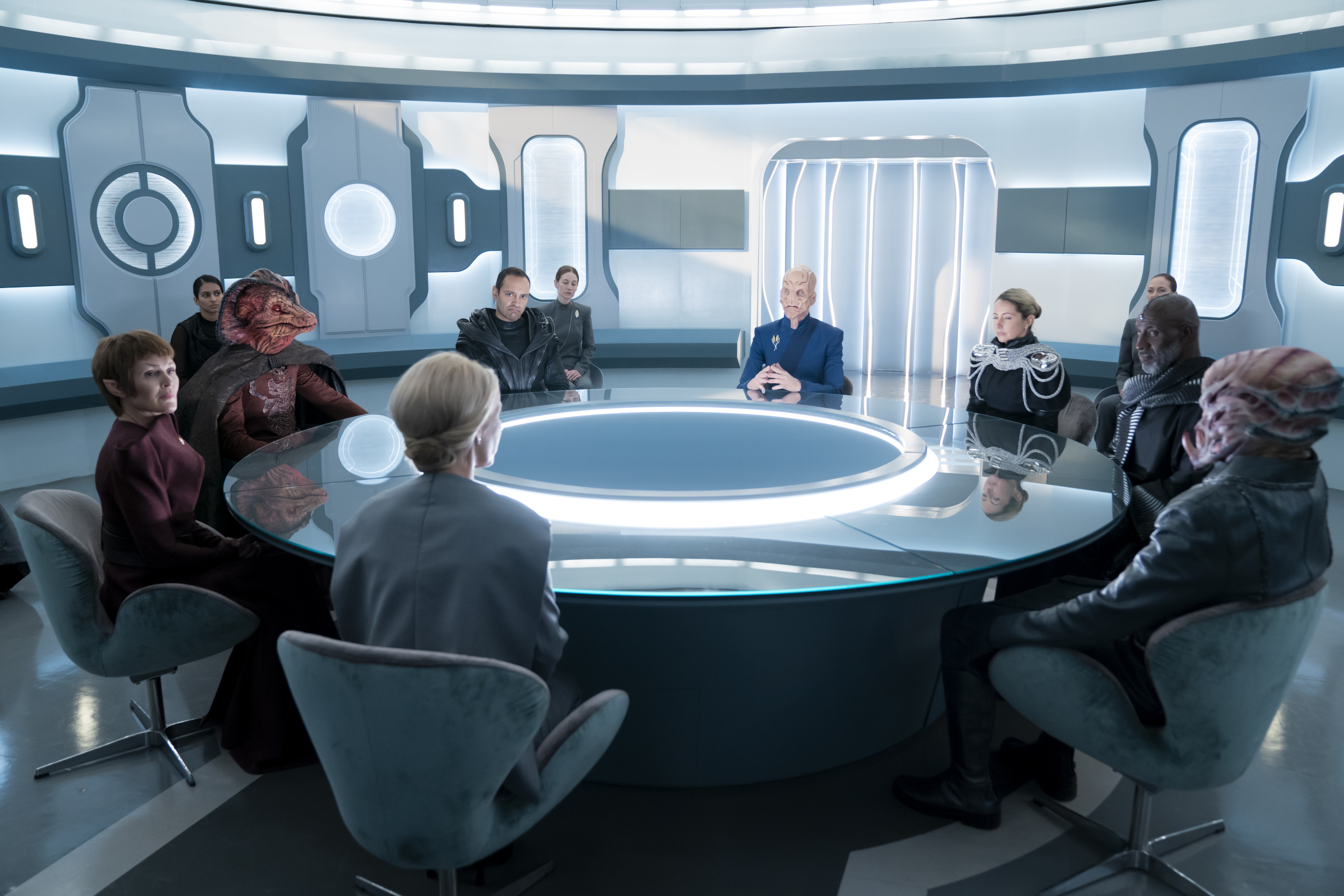
In the Whale Movie (Star Trek IV: The Voyage Home), we see the diplomats gathered together in San Francisco. In Babylon 5, we’ve seen how fascinating alien diplomats can be. With these precedents, I suggest a series that follows Federation and non-Federation ambassadors as they work on everything from the dramatic (preventing war) to the mundane (granting permission for Cardassia to import harmless flowers like foxglove, lily of the valley, hemlock, you know, just pretty, plain, innocent little flowers). Internal prejudices, complicated alliances, and interpersonal relationships (or lack thereof) all lead to a tricky, ever-shifting dramatic situation.
Cons: Another mostly stationary series, it will take a lot of creativity to keep it interesting.
Pros: Can have legacy anchors like Sarek and Lwaxana, while focusing more on other ambassadors and other worlds, giving the opportunity to flesh out other races the way so many fans want. Can even have a flashback episode about what happened while Kirk was out grabbing some whales, but would need to be a flashback if Lwaxana and Sarek are contemporaries. Gives a lot of potential for spec scripts to come back, too.
Star Trek: It’s About Family
We’ve had some not-so-great family relationships (Worf and Alexander) and some really good ones (Sisko and Jake, Rom and Nog). With the kid-friendly series up in the air, maybe it’s time for a more family-based show.
What happens when a Starfleet doctor and engineer continue their careers with kids? How do they juggle shifts, away teams, and the like? Give us a Galaxy class ship that’s not on the front lines so much, with a fair few families so there’s healthy and unhealthy alike. A school with rotating teachers can also give us little world-building tips that help build up concurrent, previous, or future Trek shows.
Cons: This would need to be heavily serialized rather than a blend of episodic and serialized like has worked best for Trek. Heavier topics like abuse (including emotional/neglect) would have to come up with career-focused people. Some might shy away from these.
Pros: There’s a big lack when it comes to family-based media showing real issues that kids will have to deal with. Some sheltering is good, but kids do need to know how to deal with death, divorce, stress, abuse (including defining abuse), and knowing what healthy relationships look like.
Star Trek: Qowat Milat
Former Starfleet ‘enemy’ races like the Klingons, Ferengi, and even the Borg have been explored and given faces and backgrounds that make us connect with them, but the Romulans have yet to get this treatment. While honestly I’d prefer some sort of sneaky, intricate, Romulan power-struggle pre-sun-go-boom, I think most Trek fans are more interested in the nuns who take on lost causes and deceive less often than Vulcans.
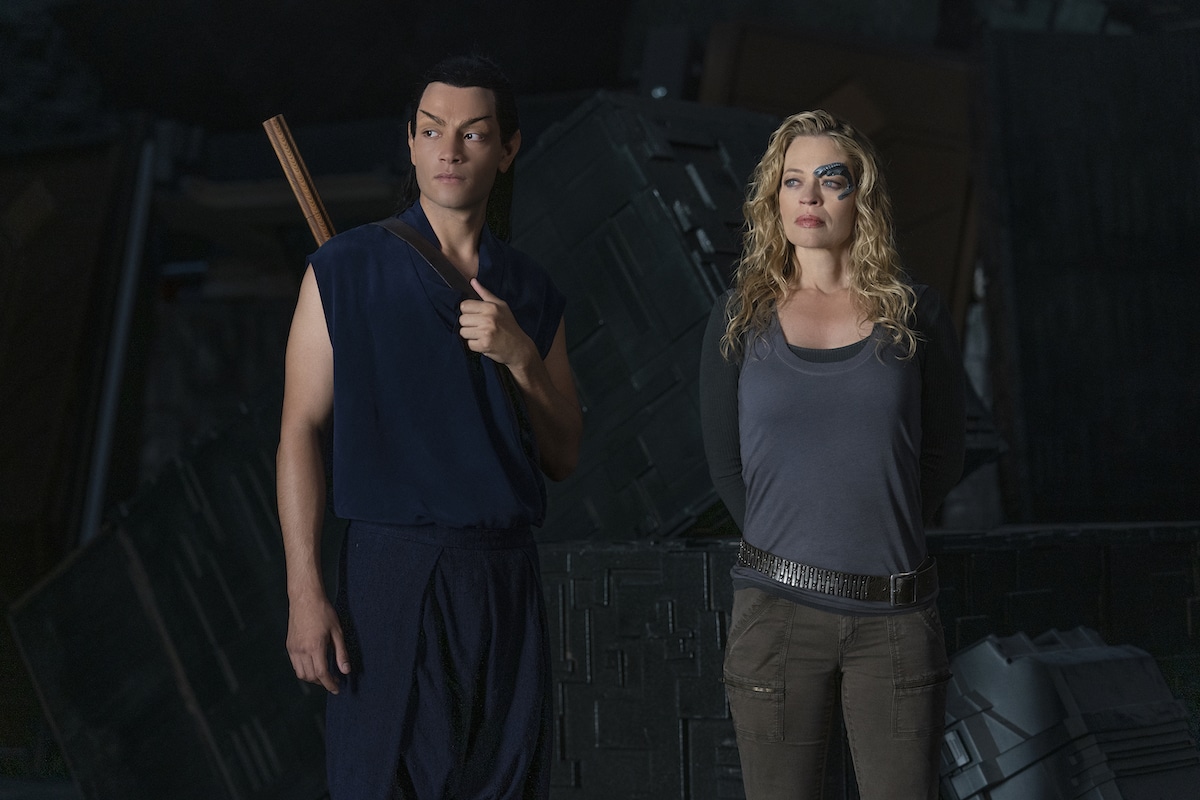
Either way, I want the Romulans to have characters we connect with and care about. Elnor was a good start, but he was underutilized. Ni’Var is too far in the future, and erases the individual complexity of the Romulans in favor of blending them in with the Vulcans, who have already had many compelling individual characters.
Cons: If the Qowat Milat is chosen, a lot of them are going to die. Lost causes rarely pan out well. The show will need a very, very strong cast and very strong additions to keep an audience with them. Sneaky power struggle would also see some deaths too, logically, but those don’t have to be the favorite characters.
Pros: Who doesn’t want an excuse for furniture-fabric-covered 80s shoulder pads to come back into style? I’m not kidding, actually. I love the camp of those outfits. And while no one could compare to Andreas Katsulas, we could potentially have a Tomalak cameo since Romulans live 200 years. We could also see the children of Alidar Jarok. Elnor could pop up.
Some fascinating things could be built on those cornerstones, and there’s a whole set of books about Romulan culture called Rihannsu that could serve as inspiration. The Romulans are unexplored potential. Also the Qowat Milat could be a beacon of inclusive hope with trans women and non-binary characters being there without being questioned or challenged.
Star Trek: Survivors
There should be incredible, traumatic fallout after season three of Picard. Thousands of Starfleet officers murdered their fellow crew members and attacked Earth and other Starfleet vessels. They lost control and autonomy. There aren’t enough counselors in the universe to deal with this trauma.
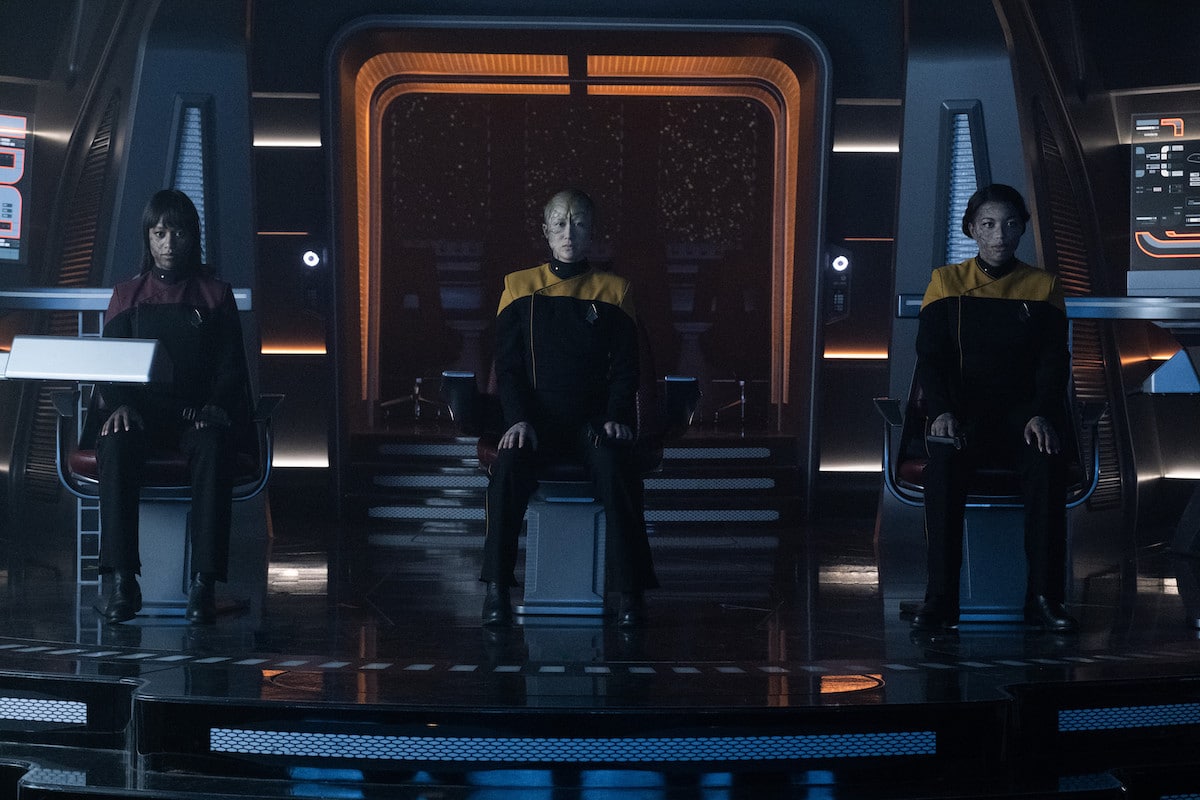
Let’s follow the engineering crew that has to repair the transporters and clear the ships of any other potential sabotage while also dealing with the ‘ghosts’ of those who died there.
Alternate addition: one of the crew is from a race that normally wears gloves because they can touch things and see stuff that’s happened before; they’re there to help make sure everyone lost is accounted for so they (and the audience) have to see what transpired.
Cons: Trek has done decently with psychological trauma before sometimes, and poorly at other times. Nog and La’an are good examples, Jean-Luc Picard is sometimes good and sometimes not great, and poor O’Brien should have been Ezri’s daily visitor but somehow wasn’t. I don’t know if Trek can tackle this in a manner that’s thoughtful and careful enough while also staying interesting. The alternate addition could add drama, but it could risk going in a weird, formulaic, Ghost Whisperer sort of style and it also risks being insensitive.
Pros: Trek constantly ignores fallout from situations. One of the interesting facets of the show Picard was that it looked into what was happening with the Romulans, but in general a lot of the aftermath of big situations is forgotten. Jennifer Sisko and the trauma Ben and Jake went through after Wolf 359 was a good exception. It would be nice to see more.
Star Trek: Spacedock
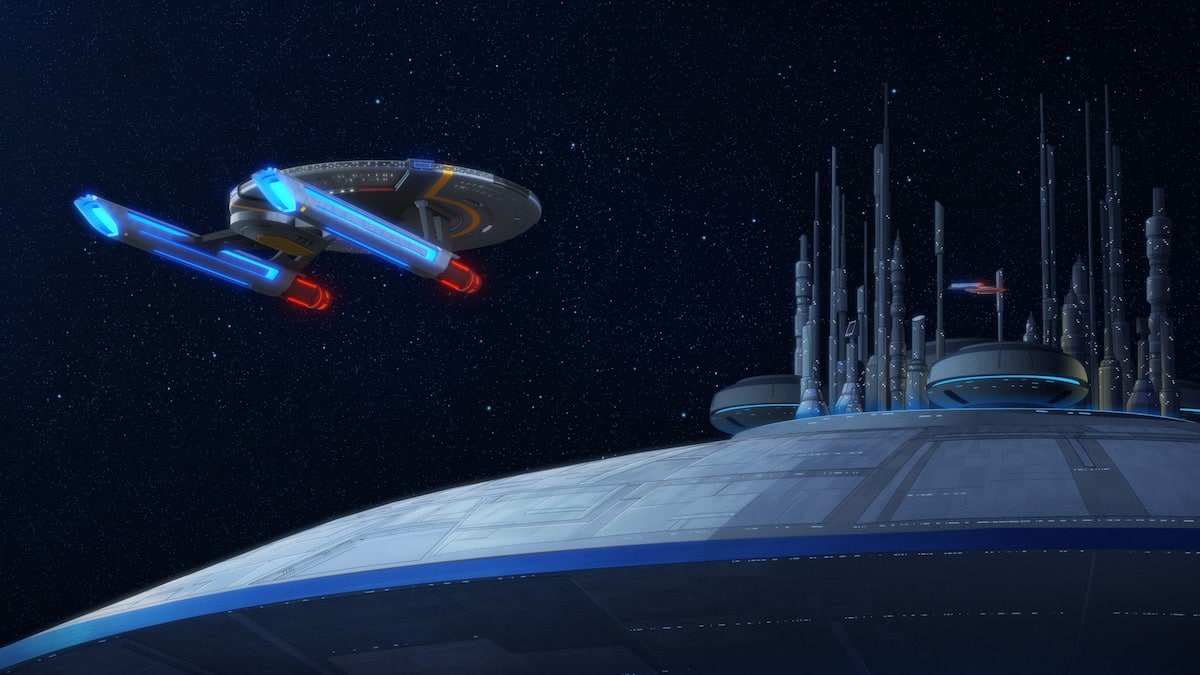
I wouldn’t have thought of it before Lower Decks, but a humorous animated Trek show is actually a really great thing to have going. Give us people who have to deal with requisitions and weird retrofits, who take the reports of giant tribbles gnawing on engine nacelles and suddenly sentient houseplants (ship plants?) running rampant and clogging up Jeffries tubes with vines and weeds.
Theirs is not the life of adventure. Theirs is the task of keeping things actually functioning and oh for pete’s sake, is that another instance of the U.S.S. Murphy’s Law breaking known universal constants and needing help even defining where half the ship exists now? Who let them name the ship that??? And where is the U.S.S. Shrödinger at the mo–actually don’t answer that. Please don’t answer that.
Cons: Again, it’s pretty stationary and there seems to be a group who isn’t a fan of stationary Trek shows. But that seems to be a steadily-shrinking group, which makes this a very minor con. There could be thoughts of another animated comedy show being too many, but again, the reception for LDS has been fantastic.
Pro: Lower Decks is very loved, and having a series of animated comedic Trek shows about underdogs seems like it could make an amazing trend. It’s also seemed to be pretty smooth as far as production and running go. Animation also allows for even more ridiculous shenanigans.
Star Trek: Short Treks Revival
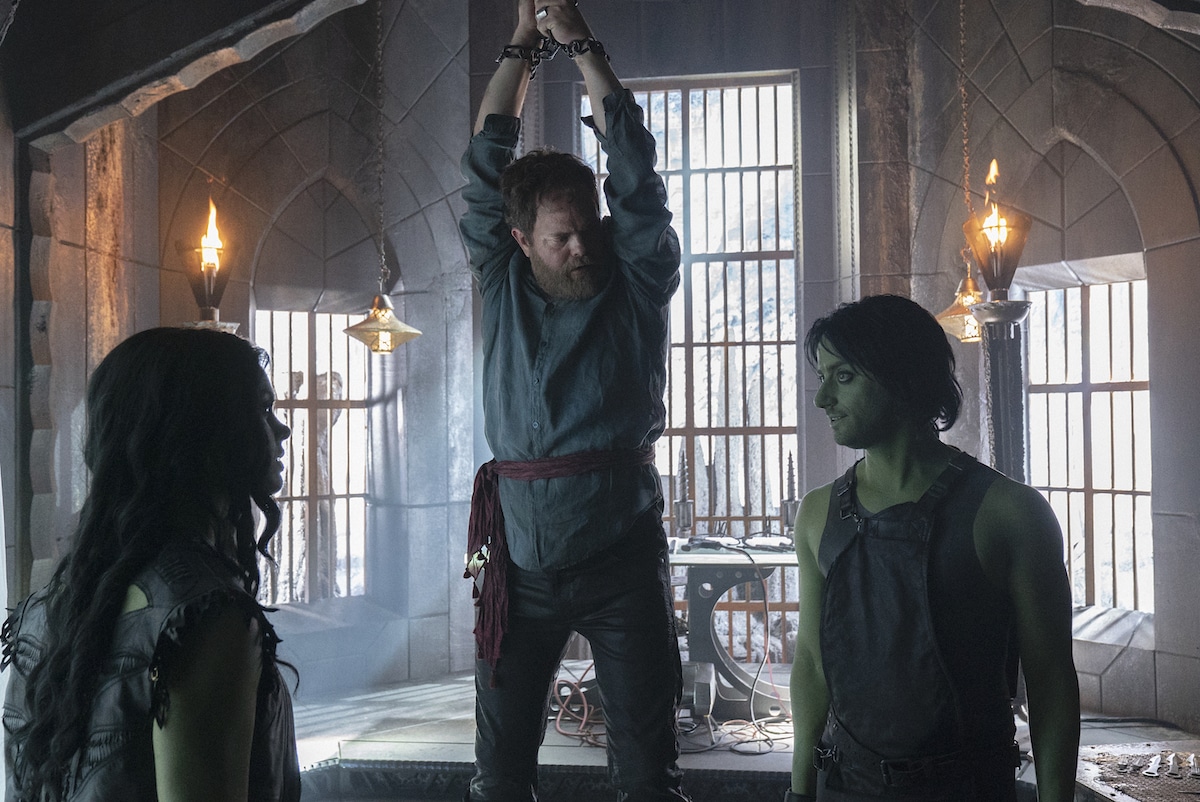
More Short Treks, with a twist! I’ve mentioned spec scripts in here before. A lot of the recent and big-name Trek writers came in through speculative scripts; that is, they sent in a script that fit strict guidelines that could potentially become an episode, got approved, and joined the writing team for that episode and then potentially more.
Modern Trek has not been open to this process. But the Short Trek format is perfect for it! Give guidelines, open submissions publically, and see what comes of it. There will absolutely be diamonds among the other stuff, and it helps create a stronger writing team.
Cons: There will be a lot of not-great submissions. But let’s face it, even the various shows have had not-great episodes. It’s worth going through the poorly-written submissions to bring fresh, new perspectives to Trek.
Pros: Fresh new perspectives. New ideas. A new path to joining the Trek team that was once open but closed before many of us could possibly utilize it.
How are you mourning Discovery and Lower Decks? What Star Trek shows do you hope to see in the future? Be sure and let us know in the comment section, or over on social media.
Keep up with all of The Beat’s Star Trek coverage here.



